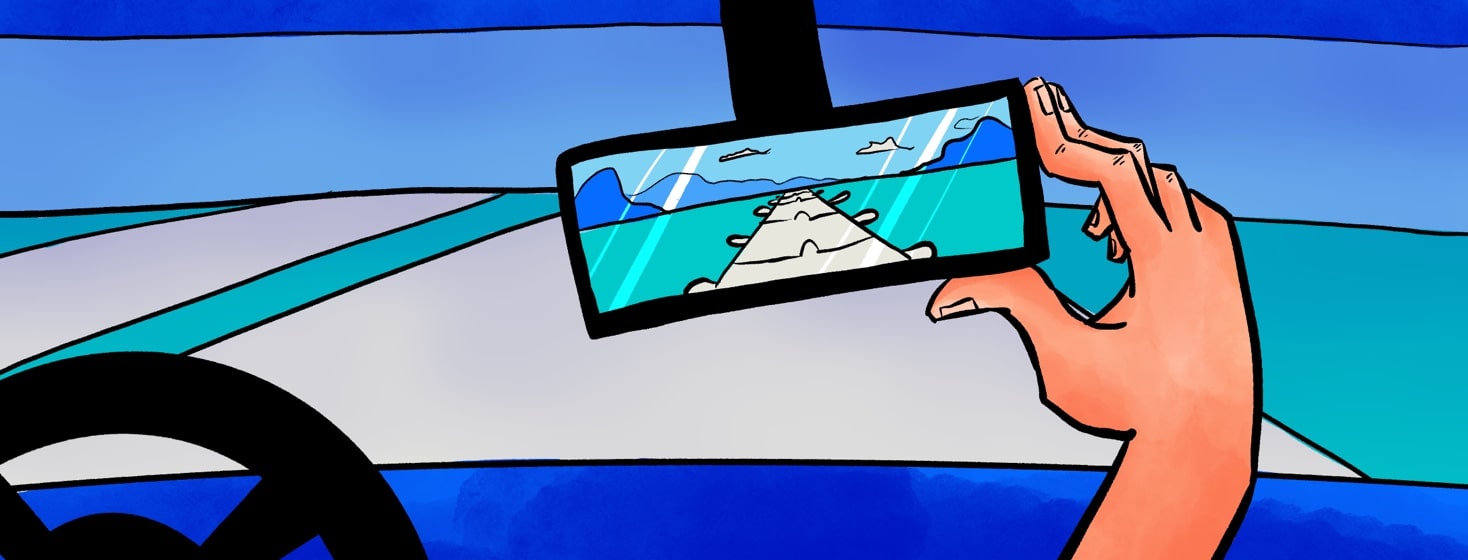My AS, Five Years From Diagnosis
Unlike many stories that I’ve read, I do not remember the day I was diagnosed. Not really. That period of my life was one big blur. I was stressed, studying day and night for my doctoral exams, and barely able to write because of the pain and inflammation in my right hand. I had been living with chronic back pain for over a decade so I didn’t think much about that, even as the pain gradually increased as a result of increased stress.
My first flare
I also bumbled through my first, most memorable AS flare that winter five years ago. During that winter break, my wife and I, along with our dog, made our way to Massachusetts to spend a few weeks with family. After the holidays, instead of accompanying my parents up to the cabin for a long weekend, we decided to hang back and relax.
I got lots of rest during those four days, but little relaxing. On Thursday, I started to feel like I was coming down with something. My body felt completely drained of energy, but I didn’t have the typical head cold symptoms. Early on I developed a slight fever with chills, but the most distressing symptom was the persistent, unmistakable fatigue anchoring me to the couch.
Those flu-like symptoms are unmistakable now, but back then I was clueless. I spent four days alternating between sleeping and something similar to sleeping, just with my eyes open. My wife, who kindly took care of me during that four-day stretch, was on the verge of carting me off to urgent care when, on day five, things finally took a turn for the better.
Diagnosis and the aftermath
Late that same winter (or was it early spring?), after countless x-rays, blood tests, and a few long and painful MRI sessions, I received my AS diagnosis. The six months after my diagnosis were the most trying months of my life. I spent most of that time in bed, watching tv and frantically Googling every question that popped into my head regarding my diagnosis: what’s the outlook for people with ankylosing spondylitis? How quickly does AS progress? What joints does AS affect? You get the picture.
For those several months, I couldn’t pause the onslaught of worries that circled through my brain. I wanted to know what this diagnosis would mean for me five, ten, twenty years down the line. As it turns out, only time will tell.
My last five years
While I felt fairly helpless those first few months after diagnosis, I no longer feel that way. Though it took some time, I started to realize that I needed to make decisions based on how it would affect my quality of life. I’d always pushed myself hard, packed my schedule to the brim with work, school, writing, art, teaching, etc. But that had to change.
So I found a less demanding career path (this was not as easy a decision as I make it sound, but I now realize it was a necessary one). I choose my activities carefully, continuing to hike or play tennis or basketball, but making sure I manage both duration and intensity. I also did some reflecting and, with time, became more at ease with my body’s need to rest. And most days, I’ve made peace with the pain.
Though I’m on a medicine regiment that seems to manage my AS fairly well, I still have days where the pain is hardly bearable. On those days, whatever peace I’ve made with the pain goes out the window. Just last night, for instance, I spent hours continually re-adjusting the heating pad over, under, and around my hips just to get a short respite from the agony. I dared not move, lest the full intensity of the pain come roaring back.
But that’s not every day, and while I occasionally wish that I didn’t have this disease, I know now that I can live with it.
What I’ve learned
After five years, I’ve learned many things not just about AS, but about my life with AS.
I’ve learned that not all days are bad days with AS. There may be periods where the bad days outweigh the good, but the reverse is also true for me.
I’ve learned that I can talk about my AS. There’s something cathartic about sharing your stories with a community of understanding, empathetic readers. And just maybe my stories will help that community too.
I’ve learned that my life isn’t what I anticipated or planned. But I also know that change is the only constant in life, diagnosis or not.
I’ve learned that I can manage my AS, though I don’t always manage it well. Regardless, I’ve built up an arsenal of tricks and techniques to help manage the pain, inflammation, and fatigue.
And above all, I’ve learned that I’m okay. That just may be my biggest revelation--that even with ankylosing spondylitis, I’m okay.

Join the conversation